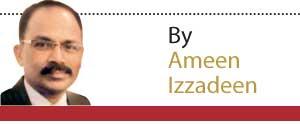29 Sep 2023 - {{hitsCtrl.values.hits}}

Pic courtesy University of Queensland
Like everything we use, there is good and bad in social media. The knife saves lives if used by a surgeon, but it can take a life if used by a killer. Similarly, social media, like fire, carries with it the properties of light and heat. As light, social media can enlighten you; as heat, it can burn you and even kill you.
with it the properties of light and heat. As light, social media can enlighten you; as heat, it can burn you and even kill you.
Social media has undoubtedly contributed immensely to the progress of the human race. It teaches people what they do not know. It connects people and makes people politically, economically, socially, and culturally more informed.
Today’s social media-savvy generation is politically more mature than the pre-social media generation, one can argue. But all that glitters in social media is not knowledge. It is also a vehicle for fake news, propaganda, gossip, and vices such as pornography and drug use. Depravity is just a click or touch away on social media. At election time, social media is used to spread lies that eventually warp the democratic will of the nation.
It spreads hate speech and social disharmony. In Myanmar, social media was used to identify and attack the Rohingyas. In Sri Lanka, anti-Muslim riots were organised, and the ruffians mobilised through social media.
In Spain, last week, parents called for tough legislation after their daughters complained that artificial intelligence (AI)-generated nude pictures of them were being circulated on social media.
Moreover, just as the Cambridge Analytica scandal shows, social media companies violate the trust the people have placed in them.
On a positive note, social media platforms became a key people-power instrument in mobilising people for last year’s Aragalaya that brought about a regime change in Sri Lanka, as they did during the Arab Spring revolutions in the Middle East.
Given these pros and cons, there is no argument that some sort of social media regulation is necessary to protect children and the well-being of society without undermining people’s fundamental right to free speech.
But the question is how it should be done. In the absence of any effective alternative, governments believe laws are the most effective means to root out the evil on social media.
In Sri Lanka, the proposed Online Safety Bill created a public debate on social media regulation only after the bill was gazetted. The objectives of the Bill are “to establish an online Safety Commission; to make provisions to prohibit online communication of certain statements of fact in Sri Lanka; to prevent the use of online accounts and inauthentic online accounts for prohibited purposes; to make provisions to identify and declare online locations used for prohibited purposes in Sri Lanka; and to suppress the financing and other support of communication of false statements of fact.” The government argues that such a bill is required to protect children.
In her column last week, Sunday Times columnist Kishali Pinto Jayawardene warned of the dangers of the Online Safety Bill in its current form, particularly the composition and lack of independence of the Online Safety Commission it would establish.
Of this bill, the proposed anti-terror law, and the broadcast law, she notes: “Suffice it to be said that these draft laws have been brought by the {Ranil} Wickremesinghe Cabinet not on a mistaken understanding of their impact but with an unambiguous and targeted purpose. Soothing exercises of revision’ and ‘consultation’ are pure shadowboxing attempts. The aim is to strategically withdraw at a given time and then attack again when it is more politically conducive.”
It was only last week that Britain’s House of Commons passed the Online Safety Bill after a four-year public debate. It aims to keep websites and internet-based services free of illegal and harmful material while defending freedom of expression. It applies to search engines; internet services that host user-generated content, such as social media platforms; online forums; some online games; and sites that publish or display pornographic content.
Social media companies that do not comply with the law face hefty fines. Ofcom, the regulator, could fine them up to £18 million or 10% of their global annual revenue, whichever is bigger.
However, the bill has also run into opposition over a clause that compromises people’s privacy, as service providers are required to scan all encrypted messages for child sexual abuse material and report them to the authorities.
Addressing a forum this week, the Bar Association of Sri Lanka (BASL)’s former president, Saliya Peiris, expressed concerns over the proposed Online Safety Bill. He argued that the bill misleads the public by claiming to protect children in Sri Lanka, while its true purpose is to shield politicians and officials from criticism. He said that existing laws, such as the Computer Crimes Act, are already in place to address criminal online activities effectively. If necessary, these laws can be amended to rectify any flaws or shortcomings.
His argument holds merit. This week, the police utilised existing laws to charge 11 young women who allegedly exposed their nudity on social media platforms for a fee. Shockingly, some of their clients were schoolboys who used their tuition fees to pay for these shows.
The problem is not about laws to regulate social media, but the poor drafting of laws. Often, little effort is made to revise the draft with the intent of identifying and closing loopholes that criminals can exploit to escape punishment or justify their wrongdoing.
These loopholes, if left unattended deliberately or due to oversight, ultimately help those in power and society’s wealthy and powerful segments evade justice with the help of high-priced lawyers they hire after committing the very crimes the laws were intended to prevent.
Critics argue that many bills presented by successive Sri Lankan governments have not been subjected to exhaustive public scrutiny, discourse, and debate. The best way to ensure that a law is fair and effective is for the government to first discuss the draft with civic-minded jurists, legal professionals, academics, and civil society groups that are vigilant about any potential threats to human rights from government actions. The media should also play a key role in highlighting the potential pitfalls of a proposed law. Public hearings can also be held to gather feedback from the public. The government is expected to act transparently throughout the lawmaking process, with the well-being of the people and the nation being the ultimate objective, not the survival of the government in power or ruling party politicians.
Sadly, such a mechanism is rarely seen in Sri Lanka’s lawmaking process. Discussions take place mostly after a bill is gazetted. Mercifully, there is a constitutional provision for the people to obtain relief against a badly drafted law in the Supreme Court before its enactment.
The new Online Safety Bill, it is learned, is an adoption of Singapore’s social media bill but carries questionable additions that allow misuse of the law for political purposes and pose a threat to free speech. The Singapore law was brought to parliament after an exhaustive process of public consultation in a transparent manner.
Enacting laws in accordance with international best practices will better serve the public and the nation.
27 Dec 2024 12 minute ago
27 Dec 2024 1 hours ago
27 Dec 2024 1 hours ago
27 Dec 2024 2 hours ago
27 Dec 2024 2 hours ago